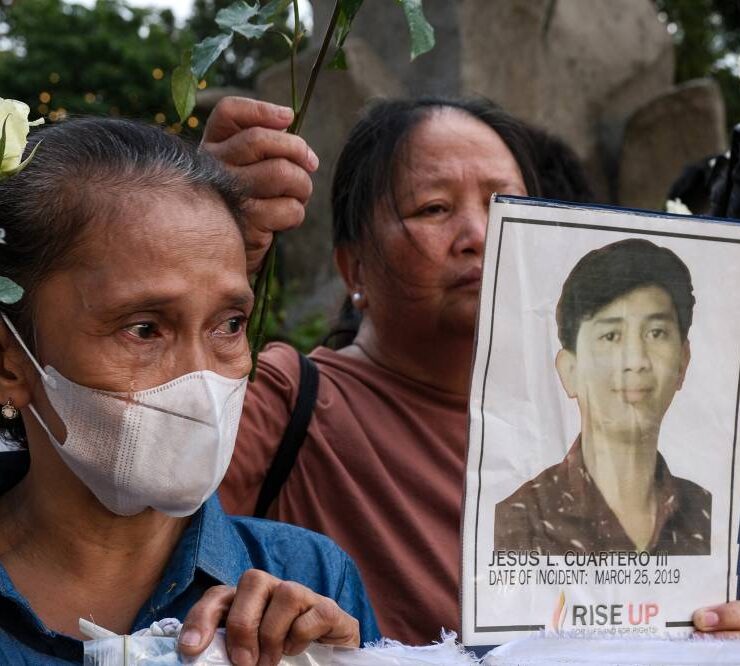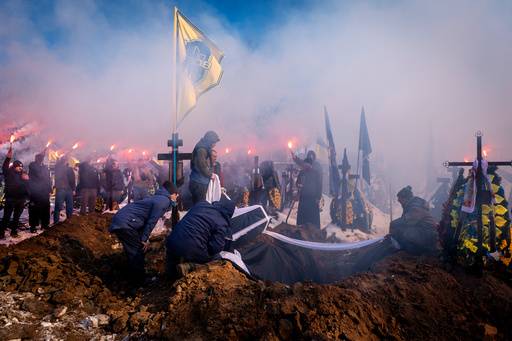Canada court junks INC suit; sect must now pay media firm

- Rebuking the Iglesia ni Cristo for legal moves meant “to silence [its] critics,” a Canadian court has junked a defamation suit it filed against the Canadian Broadcasting Corp. and ordered INC to pay damages.
- “Based on the totality of the evidence, I conclude the plaintiffs (INC) have deliberately failed to comply with the court rules and my directions. This is an extreme case of repeated non-compliance with the Rules,” ruled Justice Kenneth Champagne of the Court of King’s Bench of Manitoba-Winnipeg Center, the highest tribunal in the province of Manitoba.
- CBC’s “Fifth Estate” investigative documentary series aired an episode, titled “Church of Secrets,” and published an accompanying article of the same title on Nov. 11, 2018, which detailed the controversies hounding INC.
A Canadian court has junked a defamation suit filed by Iglesia ni Cristo (INC) against the Canadian Broadcasting Corp. (CBC) over a series of programs and articles back in 2018 exposing the alleged corruption inside the politically influential Filipino religious group.
The Court of King’s Bench of Manitoba-Winnipeg Center, the highest tribunal in the province of Manitoba, dismissed INC’s claim against CBC due to the sect’s “persistent failure” to comply with multiple court rules.
It also ruled that CBC was “entitled to costs,” ordering INC to pay damages, including legal fees and disbursements, which it has to settle within 30 days of the decision.
“Based on the totality of the evidence, I conclude the plaintiffs (INC) have deliberately failed to comply with the court rules and my directions. This is an extreme case of repeated non-compliance with the Rules. I have concluded there is no likelihood that the plaintiffs would comply with further court orders. Therefore, the extraordinary but appropriate remedy is to dismiss the action,” Justice Kenneth Champagne wrote in his ruling.
He also struck down INC’s claim without leave to amend, a legal term referring to a request made to a court to allow a party to modify or change a petition, saying it was “an abuse of the process of the court.”
The 15-page endorsement sheet was dated Feb. 7, a copy of which was obtained by the Inquirer on Tuesday.
Investigative report
The Inquirer reached out to INC spokesperson Edwil Zabala but he did not respond for comment.
INC’s defamation case stemmed from a series of scathing publications published by CBC between October and November 2018.
CBC’s “Fifth Estate” investigative documentary series aired an episode, titled “Church of Secrets,” and published an accompanying article of the same title on Nov. 11, 2018, which detailed the controversies hounding INC, including accusations of financial irregularities, kidnapping and the murder of a Canadian man.
CBC also aired interviews with the “Fifth Estate” journalists, narrating how they were harassed and intimidated by INC members when they were trying to interview INC executive minister Eduardo Manalo during an event in Sacramento, California.
In February 2019, six INC chapters in Canada’s provinces (including Alberta, Manitoba, Montreal) sued CBC, “Fifth Estate” host Robert McKeown, and show producers Timothy Sawa and Lynette Fortune.
It also named as defendants Lowell Menorca II, Liezl de Ocampo and Rolando Dizon—all expelled INC members who were interviewed by CBC. Menorca and De Ocampo claimed bankruptcy during the trial.
In response to the claim for defamation, the defendants asserted that the publications were true, pointing out that the information they provided was “fair commentary on matters of public interest and the information was responsible communication.”
‘Reprehensible’ conduct
In his ruling, Champagne admonished INC’s litigation history as “a concerted strategy to use the courts and other institutions to silence [its] critics.”
He cited how INC targeted Menorca and De Ocampo with a barrage of lawsuits in the Philippines, including 40 libel cases against Menorca alone, as well as in Canada and in the United States, which contributed to their bankruptcy.
“Whoever is calling the shots for INC has previously made a determined effort to use the court process to silence their critics. The totality of the evidence supports one conclusion: INC continues to engage in this litigation strategy,” Champagne said.
“This conduct is unacceptable and reprehensible as it diminishes the court’s integrity and undermines confidence in the administration of justice,” he added.
The justice also noted the deficiencies in the testimony of Bro. Rvy Medicielo, whom INC presented as a “knowledgeable representative” to be cross-examined by the defendants’ lawyers.
But Champagne ruled that Medicielo was “nothing more than a sacrificial lamb.”
“He knew little, if anything, about matters in this litigation… His knowledge on important matters was virtually nonexistent,” he said.
The court found that Medicielo’s examination resulted in more than 50 undertakings, many of the answers he told were “generic and unhelpful.”
Political clout
Founded by Felix Manalo in 1914, INC is the third-biggest religious group in the Philippines with 2.8 million members, according to the government census in 2020. Roman Catholics predominate with over 85 million, followed by nearly 7 million Muslims.
It wields significant political and social clout, as it has been courted by politicians especially during the election season for its bloc voting practice.
INC has international membership with 7,000 congregations and missions grouped into more than 178 ecclesiastical districts in 166 countries and territories around the world, including in Canada where it has more than 80 congregations.
‘Beacon of hope’
Menorca, the excommunicated minister who has been granted refugee status in Canada since 2018, called the court’s decision a “beacon of hope” for all those who suffered under the “oppressive tactics” of INC.
“Justice will always prevail in countries where truth is upheld and integrity resides in its courts,” he said in a Facebook post linking to a copy of the court ruling.
“Hopefully, the Philippine justice system will soon follow suit,” he added.





















